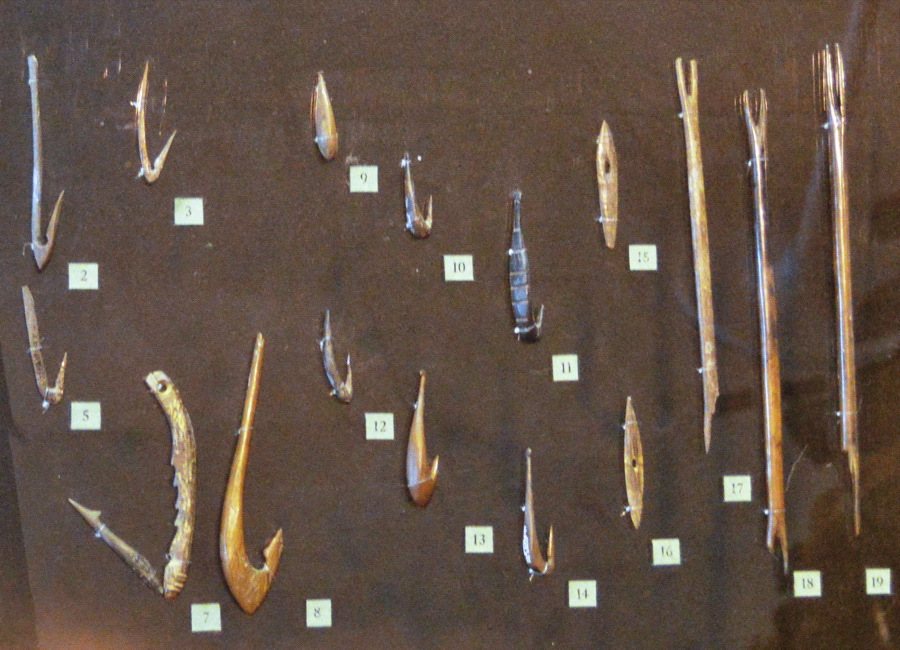|
Adjacent Waters Boundaries (Northern Ireland) Order 2002
The Adjacent Waters Boundaries (Northern Ireland) Order 2002 (SI 2002/791) is a statutory instrument of the United Kingdom government, defining the boundaries of internal waters, territorial sea, and Exclusive economic zone, British Fishing Limits adjacent to Northern Ireland. It was introduced in accordance with the Northern Ireland Act 1998, which established the devolved Northern Ireland Assembly. Defining jurisdictions The territorial waters defined come under the jurisdiction of Law of Northern Ireland, Northern Ireland law, and are also used for defining the area of operation of the Northern Ireland Executive (including the Department of Agriculture, Environment and Rural Affairs) and other Northern Ireland Executive agencies and List of Northern Ireland ministers, government departments and executive agencies, public bodies. The territorial waters defined as ''not'' being Northern Ireland waters come under the jurisdiction of either Scottish law or English law. Because t ... [...More Info...] [...Related Items...] OR: [Wikipedia] [Google] [Baidu] |
Northern Ireland
Northern Ireland ( ; ) is a Countries of the United Kingdom, part of the United Kingdom in the north-east of the island of Ireland. It has been #Descriptions, variously described as a country, province or region. Northern Ireland shares Republic of Ireland–United Kingdom border, an open border to the south and west with the Republic of Ireland. At the 2021 United Kingdom census, 2021 census, its population was 1,903,175, making up around 3% of the Demographics of the United Kingdom#Population, UK's population and 27% of the population on the island of Ireland#Demographics, Ireland. The Northern Ireland Assembly, established by the Northern Ireland Act 1998, holds responsibility for a range of Devolution, devolved policy matters, while other areas are reserved for the Government of the United Kingdom, UK Government. The government of Northern Ireland cooperates with the government of Ireland in several areas under the terms of the Good Friday Agreement. The Republic of Ireland ... [...More Info...] [...Related Items...] OR: [Wikipedia] [Google] [Baidu] |
Constitution Of The United Kingdom
The constitution of the United Kingdom comprises the written and unwritten arrangements that establish the United Kingdom of Great Britain and Northern Ireland as a political body. Unlike in most countries, no official attempt has been made to Codification (law), codify such arrangements into a single document, thus it is known as an uncodified constitution. This enables the constitution to be easily changed as no provisions are formally entrenched. The Supreme Court of the United Kingdom and its predecessor, the Judicial functions of the House of Lords, Appellate Committee of the House of Lords, have recognised and affirmed constitutional principles such as Parliamentary sovereignty in the United Kingdom, parliamentary sovereignty, the rule of law, democracy, and upholding Internationalism (politics), international law. It also recognises that some Act of Parliament (UK), Acts of Parliament have special constitutional status. These include Magna Carta, which in 1215 required the ... [...More Info...] [...Related Items...] OR: [Wikipedia] [Google] [Baidu] |
Statutory Instruments Of The United Kingdom
A statute is a law or formal written enactment of a legislature. Statutes typically declare, command or prohibit something. Statutes are distinguished from court law and unwritten law (also known as common law) in that they are the expressed will of a legislative body, whether that be on the behalf of a country, state or province, county, municipality, or so on. Depending on the legal system, a statute may also be referred to as an "act." Etymology The word appears in use in English as early as the 14th century. "Statute" and earlier English spellings were derived from the Old French words ''statut'', ''estatut'', ''estatu,'' meaning "(royal) promulgation, (legal) statute." These terms were in turn derived from the Late Latin ''statutum,'' meaning "a law, decree." Publication and organization In virtually all countries, newly enacted statutes are published and distributed so that everyone can look up the statutory law. This can be done in the form of a government gazette, whi ... [...More Info...] [...Related Items...] OR: [Wikipedia] [Google] [Baidu] |
Fishing In Northern Ireland
Fishing is the activity of trying to catch fish. Fish are often caught as wildlife from the natural environment (Freshwater ecosystem, freshwater or Marine ecosystem, marine), but may also be caught from Fish stocking, stocked Body of water, bodies of water such as Fish pond, ponds, canals, park wetlands and reservoirs. Fishing techniques include trawling, Longline fishing, longlining, jigging, Fishing techniques#Hand-gathering, hand-gathering, Spearfishing, spearing, Fishing net, netting, angling, Bowfishing, shooting and Fish trap, trapping, as well as Destructive fishing practices, more destructive and often Illegal, unreported and unregulated fishing, illegal techniques such as Electrofishing, electrocution, Blast fishing, blasting and Cyanide fishing, poisoning. The term fishing broadly includes catching aquatic animals other than fish, such as crustaceans (shrimp/lobsters/crabs), shellfish, cephalopods (octopus/squid) and echinoderms (starfish/sea urchins). The term is n ... [...More Info...] [...Related Items...] OR: [Wikipedia] [Google] [Baidu] |
Economy Of Northern Ireland
The economy of Northern Ireland is the smallest of the four countries of the United Kingdom, constituents of the United Kingdom and the smaller of the two jurisdictions on the island of Ireland. At the time of the Partition of Ireland in 1922, and for a period afterwards, Northern Ireland had a predominantly industrial economy, most notably in shipbuilding, rope, rope manufacture and textiles, but most heavy industry has since been replaced by Service (economics), services. Northern Ireland's economy has strong links to the economies of the Republic of Ireland and Great Britain. Overview Output and economic growth In 2022, Northern Ireland had the smallest economy of any of the twelve ITL (UK), ITL 1 regions of the United Kingdom, at £55.5 billion; however, this is partly because Northern Ireland has the smallest population and at £26,600 Northern Ireland had a greater GDP per capita than both North East England and Wales. Rural areas including the North West are particula ... [...More Info...] [...Related Items...] OR: [Wikipedia] [Google] [Baidu] |
Constitutional Laws Of Northern Ireland
A constitution is the aggregate of fundamental principles or established precedents that constitute the legal basis of a polity, organization or other type of entity, and commonly determines how that entity is to be governed. When these principles are written down into a single document or set of legal documents, those documents may be said to embody a ''written constitution''; if they are encompassed in a single comprehensive document, it is said to embody a ''codified constitution''. The Constitution of the United Kingdom is a notable example of an ''uncodified constitution''; it is instead written in numerous fundamental acts of a legislature, court cases, and treaties. Constitutions concern different levels of organizations, from sovereign countries to companies and unincorporated associations. A treaty that establishes an international organization is also its constitution, in that it would define how that organization is constituted. Within states, a constitution define ... [...More Info...] [...Related Items...] OR: [Wikipedia] [Google] [Baidu] |
Law Of The Sea
Law of the sea (or ocean law) is a body of international law governing the rights and duties of State (polity), states in Ocean, maritime environments. It concerns matters such as navigational rights, sea mineral claims, and coastal waters jurisdiction. The connotation of ''ocean law'' is somewhat broader, but the law of the sea (anchored in the United Nations Convention on the Law of the Sea (UNCLOS)) is so comprehensive that it covers all areas of ocean law as well (e.g., marine environmental law, maritime law). While drawn from a number of international customs, treaties, and agreements, modern law of the sea derives largely from the United Nations Convention on the Law of the Sea. That convention is effective since 1994, and is generally accepted as a codification of customary international law of the sea, and is sometimes regarded as the "constitution of the oceans". Law of the sea is the public law counterpart to admiralty law (also known as maritime law), which applies to ... [...More Info...] [...Related Items...] OR: [Wikipedia] [Google] [Baidu] |
Welsh Zone (Boundaries And Transfer Of Functions) Order 2010
The Welsh Zone (Boundaries and Transfer of Functions) Order 2010 (SI 2010/760) is a statutory instrument of the United Kingdom government, defining the boundaries of internal waters, territorial sea, and British Fishing Limits adjacent to Wales. It was introduced in accordance with the Government of Wales Act 2006, which reformed the devolved National Assembly for Wales. Defining jurisdictions The territorial waters defined come under the jurisdiction of Welsh law, and are also used for defining the area of operation of the Welsh Government (including the Marine and Fisheries Division) and other Welsh Government agencies and sponsored bodies. The territorial waters defined as ''not'' being Welsh waters come under the jurisdiction of either Scottish law, Northern Ireland law, or the rest of English law. Because the order defines the territorial limits of the separate jurisdictions, it comprises a piece of constitutional law in the constitution of the United Kingdom. Welsh wat ... [...More Info...] [...Related Items...] OR: [Wikipedia] [Google] [Baidu] |
Scottish Adjacent Waters Boundaries Order 1999
The Scottish Adjacent Waters Boundaries Order 1999 (SI 1999/1126) is a statutory instrument of the United Kingdom government, defining the boundaries of internal waters, territorial sea, and British fishing limits adjacent to Scotland. It was introduced in accordance with the Scotland Act 1998, which established the devolved Scottish Parliament. Defining jurisdictions The territorial waters defined come under the jurisdiction of Scots law, and are also used for defining the area of operation of the Scottish Government (including the Marine Directorate), SEPA, and other Scottish Government agencies and public bodies. The territorial waters defined as ''not'' being Scottish waters come under the jurisdiction of either English law or Northern Ireland law. Because the order defines the territorial limits of the three separate jurisdictions, it comprises a piece of constitutional law in the constitution of the United Kingdom. Scottish waters Scottish waters is a colloquial term w ... [...More Info...] [...Related Items...] OR: [Wikipedia] [Google] [Baidu] |
Irish Boundary Commission
The Irish Boundary Commission () met in 1924–25 to decide on the precise delineation of Republic of Ireland – United Kingdom border, the border between the Irish Free State and Northern Ireland. The 1921 Anglo-Irish Treaty, which ended the Irish War of Independence, provided for such a commission if Northern Ireland chose to secede from the Irish Free State (Article 12), an event that occurred as expected two days after the Free State's inception on 6 December 1922, resulting in the partition of Ireland. The governments Government of the United Kingdom, of the United Kingdom, Executive Council of the Irish Free State, of the Irish Free State and Executive Committee of the Privy Council of Northern Ireland, of Northern Ireland were to nominate one member each to the commission. When the Northern government refused to cooperate, the British government assigned a Belfast newspaper editor to represent Northern Irish interests. The provisional border in 1922 was that which the Gov ... [...More Info...] [...Related Items...] OR: [Wikipedia] [Google] [Baidu] |
Partition Of Ireland
The Partition of Ireland () was the process by which the Government of the United Kingdom of Great Britain and Ireland (UK) divided Ireland into two self-governing polities: Northern Ireland and Southern Ireland (the area today known as the Republic of Ireland, or simply Ireland). It was enacted on 3 May 1921 under the Government of Ireland Act 1920. The Act intended both territories to remain within the United Kingdom and contained provisions for their eventual reunification. The smaller Northern Ireland territory was duly created with a devolved government (Home Rule) and remained part of the UK. Although the larger Southern Ireland was also created, its administration was not recognised by most of its citizens, who instead recognised the self-declared 32-county Irish Republic. Ireland had a (largely Catholic) nationalist majority who wanted self-governance or independence. Prior to partition, the Irish Parliamentary Party used its control of the balance of power in the ... [...More Info...] [...Related Items...] OR: [Wikipedia] [Google] [Baidu] |








